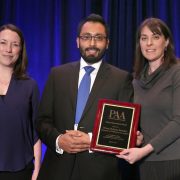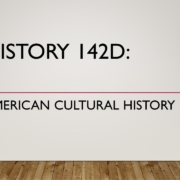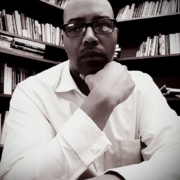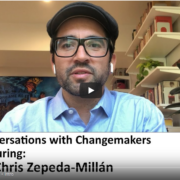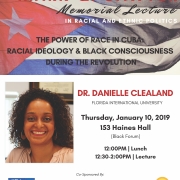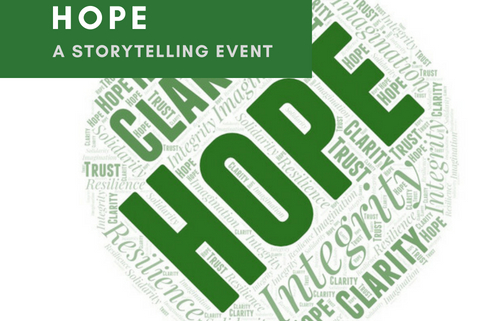
A Conversation with Dr. Beth Ribet, Co-Director and Co-Founder of Repair and UCLA Lecturer in Gender Studies and Disability Studies
By Lara Drasin
TOMORROW, September 27, from 6:30 to 8:30 PM in UCLA’s Young Research Library conference room, Repair, a nonprofit organization engaged in research, education, and community-level advocacy regarding health challenges, health disparities and disabilities that result from social problems – along with co-sponsors the UCLA Center for the Study of Women (CSW) and the Positive Results Corporation – will present “Hope.” Hope will be the second of a seven-part series of events titled “Transformation: Lectures, Conversations, and Stories About Healing and Social Action.” The other events include Resilience, Imagination, Clarity, Integrity, Trust and Solidarity, which Repair’s Dr. Beth Ribet says are all a part of the transformation process.
“We decided to run this series, really, just as something we thought was deeply needed by a lot of people – those we know, and those we don’t know – in Los Angeles,” said Ribet, who started Repair with co-director and co-founder Claudia Peña in 2014. “There is a lot of legitimate fear and concern about the state of our world, and of the nation, right now… The messages we’re getting about our future are deeply disheartening, and I think there are so many of us who want to imagine how things could be different but are overwhelmed by that process. So the series is, in one sense, about creating a space for people to imagine social transformation.”
In describing the philosophy behind the event, Ribet stressed that the focus will be not just on each individual’s own healing process, but also the idea of healing as a collective process for the community.
“The themes of healing and social action are meant to be both personal and collective, as most very good things are,” Ribet said. “We think about healing as something that people need to do individually because there are so many reasons that we have to be traumatized, whether by family violence, poverty, racism, policing and incarceration, interpersonal violence, exhaustion, fatigue, or overwork. And so we wanted to focus on healing in a sense that a lot of us need, but also understand that we feel best individually when our communities are healing too. So we’re healing together.”
Ribet acknowledges that the term “community” can be defined in multiple ways. “One of the things that can be true about community,” she explained, “is that it’s the place where you find the people who affirm your reality and make it easier for you to be the person you need to be.”
This particular event, Hope, was named for what Ribet describes as an elemental part of the change-making process. “I don’t know anybody who doesn’t need more hope,” she said. Ribet explained that after one survives personal or political trauma, for transformation to take place they must be able to imagine that good things can and will happen, even if it seems impossible or hasn’t been something they have experienced in the past.
“Having hope makes it more likely that you will reach for the possibility [of things getting better],” Ribet said.
Attendees can expect an environment focused on sharing, listening and support on Thursday. Ribet will say a few words, followed by an introduction from Dr. Rachel Lee, Director of UCLA CSW, and then multiple storytellers will share their own experiences. Storytellers for “Hope” include:
Kandee Rochelle Lewis is the Executive Director of the Positive Results Corporation, and works to address trauma, teen dating violence, and domestic violence and sexual assault. Her awards and accolades include, but are not limited to the 2018 Hope Award in Education, 2017 “Woman of the Year” from the LA Commission on the Status of Women, and the Vanguard Award for most influential African-Americans in Los Angeles. She is also a founding Board Member for the South Los Angeles Homeless and Foster Care Collaborative.
Shawna Charles holds an MBA and a PhD in Clinical Psychology. As a coach, she identifies as an ‘ACTIONIST’, who motivates people to intentionally choose happiness. She is the creator and founder of ‘Think To Be Happy,’ and has more than ten years experiencing coaching and mentoring. Dr. Charles is a graduate of Howard University and has been recognize by the City of Los Angeles, University of Southern California, and New York Rescue Mission among other organizations, for her community work.
Anam Ella Durrani is the founder of A.E.D. Designs, a successful made-to-order clothing line she established at the age of 16 years, while living in Karachi, Pakistan. She worked 14-18 hour days to launch and build the company and its brand, and helped to catalyze an influx of new Pakistani female designers, as her company achieved recognition and acclaim. She identifies becoming an entrepreneur as a teenage girl — in defiance of social taboos and constraints limiting and stigmatizing female independence — as her proudest accomplishment. She is the newest, and youngest member of the board at Repair, and is now the CEO of Durrani Investment Corporation in Los Angeles. As part of her philanthropic work, she is currently building a school for street children in Karachi.
“Storytelling and commitments to healing go way, way back in communities that have always needed to be about resistance,” Ribet said, “whether it’s to colonization, legacies of slavery, or systemic economic inequality, telling stories – preserving stories – is often part of how people who are subordinated or oppressed preserve history, socialize children and come together.”
The ethos behind this form of community healing is a constructive one, as Ribet says it helps further the process of reimagining the world in which we live. “We heal as individuals who care about social change not just to feel better, which is important in and of itself,” she explained, “but because we have to, in order to be there for each other, for our children, our parents, our dear friends, our community members, our faith-based and cultural based institutions. We don’t have much to give if we don’t heal, and if we aren’t intentional about creating spaces and resources that enable us to do that. When it shifts, then you start to see social mobilization that’s so much more powerful and sustainable.”
Over 20 co-sponsors have signed on to help promote the “Transformation” series. Click here for more information and to RSVP for “Hope” — Part of Transformation: Lectures, Conversations and Storytelling about Healing and Social Action.
For more information about Repair and their work, and to join their mailing list, visit http://repairconnect.org/.

